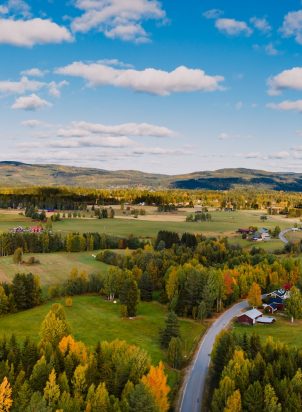In a new article in the journal Regional & Federal Studies, Nordregio’s Senior Research Fellow Michael Kull et al. analyse the coordination and implementation of the Bolsa Verde Programme (BVP) in Brazil. The BVP aims at reducing extreme poverty and encouraging sustainable forestry. The Brazilian partners showed great interest in Nordic governance models, including stakeholder involvement. Kull urges for further Bra-Nordic collaboration.
Despite the wealth of natural resources, livelihoods in rural areas of Brazil are under extreme poverty pressure: Brazil has the single largest concentration of rural poverty in Latin America and the largest number of rural poor in the Western Hemisphere. Considering the challenges of eradicating poverty in rural areas while simultaneously encouraging the conservation of natural resources, the Brazilian federal government under Dilma Rousseff launched the BVP in 2011. Applying the multilevel governance approach, Kull et al. analyse the implementation and governance coordination of the BVP.
Brazil is an example of a challenging governance context par excellence: continental size, multi-levelled governance structures and diverse administrative cultures meet with ambitious, large-scale policy needs and objectives. Governance coordination occurs as a reaction to implementation challenges and problems observed ‘on the way’, instead of providing a more systematically and programmatically designed space for bringing together actors from various levels and spheres of governance. However, interviewees seem aware of the shortcomings of governance coordination, understood as rather hierarchical, centrally driven and often tackling challenges of vertical multi-actor coordination in a reactive, ad-hoc manner. Interviewees also realized the limits of top-down/hierarchical implementation and the need for flexibly to reach the set goals.
To meet the ideal of a democratic and efficient governance approach, more interactive participation would be the next step – governance coordination based on a partnership in which citizens, stakeholders, experts and/or politicians actively engage in (policy) debate. Possibilities for developing such a systematic and more inclusive governance approach seem feasible but are determined by both structure/operation of Brazilian federalism, and the political will of the people ultimately in charge of the implementation and further development of programs such as the BVP.
“When carrying out interviews, Brazilian partners showed a great interest in European and specifically Nordic models of decision-making and coordination of sustainable rural development approaches and programs,“ says Michael Kull, Senior Research Fellow at Nordregio.
“Furthermore, when it comes to the sustainable management of forests, Brazilian partners from the Ministry of Environment seem keen on learning from the Nordic countries. Overall, the learning potential for both Brazilians and Nordic actors is huge. Collaboration should be intensified,” Kull adds.


